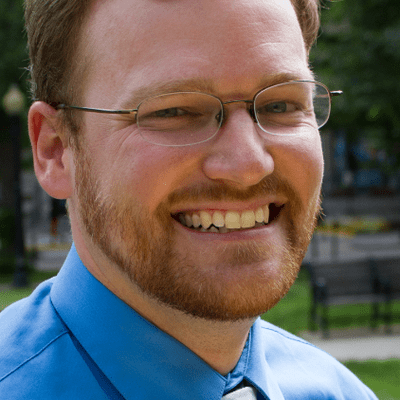A version of this story also appeared on Salon.
Introduction
Most of the money behind an upstart “Republicans for Clinton” super PAC has come from billionaire Democratic megadonor Dustin Moskovitz, a co-founder of Facebook.
According to a Center for Public Integrity review of new campaign finance filings, Moskovitz has contributed $250,000 to the R4C16 super PAC. That represents about 70 percent of the group’s income through Oct. 19.
R4C16 nevertheless touts itself as “a grassroots movement” of “concerned Republicans who are committed to vote for Hillary Clinton for president to defeat Donald Trump.”
During the final presidential debate last week in Nevada, the super PAC sponsored an anti-Trump mobile billboard with the message “DON’T GROPE. VOTE,” which traversed the Las Vegas strip for hours.
It has also launched an app and website to encourage supporters of third-party candidates to trade their votes to ensure Clinton wins in critical battleground states.
The ad’s sponsor
R4C16 officially registered as a super PAC with the Federal Election Commission in early September. Super PACs may raise and spend unlimited amounts of money to advocate for or against political candidates. They may not coordinate their spending with those candidates.
Who’s behind it?
R4C16 was co-founded by John Stubbs and Ricardo Reyes, who both previously worked in Republican President George W. Bush’s administration.
Reyes, a former deputy assistant U.S. trade representative for media and public affairs, has also held senior positions at Silicon Valley companies including Google, Square and Tesla.
Stubbs, a former senior adviser to the U.S. trade representative, went on to found his own consulting firm, Romulus Global Issues Management. He’s currently a fellow at Harvard University’s Berkman Center for Internet and Society.
Then there’s Moskovitz, the Facebook co-founder.
Last month, Moskovitz and his wife, Cari Tuna, pledged to spend $20 million to help elect Democrats in 2016.
“Though we’ve voted for the Democratic nominee each of the times we’ve cast a ballot, we’ve considered ourselves independent thinkers who respect candidates and positions from both sides of the aisle,” the couple wrote in an article on Medium at the time.
“Like many Democratic voters, we don’t support every plank of the platform, but it is clear that if Secretary Clinton wins the election, America will advance much further toward the world we hope to see,” they continued. “If Donald Trump wins, the country will fall backward.”
In August, Moskovitz and Tuna each contributed $416,100 to the Hillary Victory Fund, a joint fundraising committee that benefits Clinton’s campaign as well as the Democratic National Committee and Democratic parties in several states. Campaign finance records show the couple has given more than $21 million to federal political candidates and groups so far this year. All are liberal-leaning.
Stubbs told the Center for Public Integrity that there was no disconnect for his Republican super PAC to be receiving so much money from a Democratic megadonor.
“Our mission is country above party,” Stubbs said, adding that the super PAC had attracted support from Republicans, Democrats and independents because “our effort is about breaking down nonsensical Red Team vs. Blue Team barriers.”
Money in
In addition to Moskovitz, other big donors to the R4C16 super PAC include securities broker Robert A. Granieri of New York ($70,000) and philanthropist Martha Ehmann Conte of San Francisco ($25,000).
Campaign finance records show that both Granieri and Conte have donated $2,700 to Clinton’s campaign while having financially backed a non-Trump GOP presidential contender as well.
Granieri donated $2,700 in January to the failed presidential bid of U.S. Sen. Marco Rubio of Florida — and another $24,000 to a super PAC that backed him — before donating to Clinton in August.
Earlier this month, Granieri also donated $50,000 to the Congressional Leadership Fund, a super PAC focused on helping Republicans keep control of the U.S. House of Representatives.
For her part, Conte gave $2,700 to the failed presidential campaign of former New York Gov. George Pataki — and an additional $25,000 to a super PAC that backed Pataki.
Why it matters
Not only does the R4C16 super PAC want Republicans to vote for Clinton, the group is also encouraging all voters to consider voting “strategically” — especially if you live in a swing state and are leaning toward a minor-party candidate such as Green Party presidential nominee Jill Stein or Libertarian nominee Gary Johnson.
Stubbs said that R4C16’s website had already connected “connected thousands of voters” who plan on trading votes. The super PAC’s vote-trading gambit works like this: Stein and Johnson supporters living in swing states agree to vote for Clinton, and in return, Clinton supporters in non-swing states agree to in return to support a minor-party candidate.
One trade that Stubbs said the super PAC has helped initiate: An upcoming swap between Anlin Wang, a Stein supporter in Pennsylvania, where polls show Clinton with a narrow lead, and Sadiq Khan, a Clinton supporter in New Jersey, a state that Clinton is expected to carry handily.
Stubbs said the two voters will be meeting at Independence Hall in Philadelphia on Saturday, where they plan to fill out their absentee ballots and then walk to the post office together to mail them.
“What do supporters of Gary Johnson, Jill Stein or Republicans for Clinton have in common?” Stubbs continued. “We all agree Donald Trump is the worst option in 2016.”
Read more in Money and Democracy
Money and Democracy
Trump likely to choose millionaire jurist for Supreme Court vacancy
Learn about the financial holdings of the three appellate judges on short list
Money and Democracy
With morale in tatters, Federal Election Commission eyes changes
New ‘ombudsman’ office, better staff training among agency chairman’s proposals

Join the conversation
Show Comments